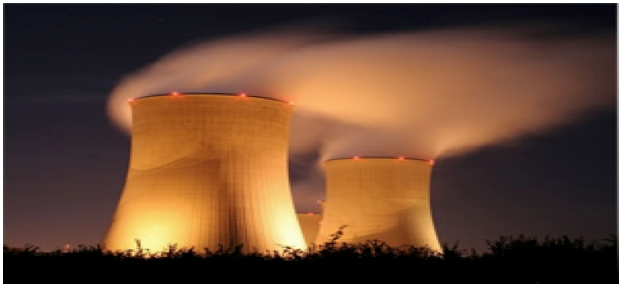OTHER WORDS - The US government is going out of its way to downplay radiation hazards in the aftermath of one of the world's worst nuclear accidents.
Last month, the Massachusetts Institute of Technology (MIT) heralded an Energy Department-funded study indicating that evacuation zones around nuclear power stations might not be needed after a major nuclear accident.
The study, which exposed mice to radiation levels comparable to those near the Fukushima nuclear disaster, found no evidence of genetic harm.
"Current US regulations require that residents of any area that reaches radiation levels eight times higher than background should be evacuated," according to MIT's press release.
"However, the financial and emotional cost of such relocation may not be worthwhile, the researchers say."
It's quite a leap to claim that evacuation zones around nuclear power plants might not be needed based on the chromosomes of 112 irradiated mice.
In a devastating critique, blogger Ian Goddard points out [[http://www.youtube.com/user/GoddardsJournal ]] that the MIT study excluded extensive evidence of genetic damage to humans living in a radiation-contaminated environment.
Although doses in a peer-reviewed study of 19 groups of children living near Chernobyl were consistently lower than the MIT mouse study, most showed lasting genetic damage.
"MIT's presentation of its study as the first scientific examination of the genetic risks of living in a nuclear disaster zone is pure science fiction, not fact," Goddard concludes.
Even more troubling, the Obama administration reduced emergency preparedness in case of a major nuclear accident in a quiet announcement made six months ago, right before Christmas — virtually guaranteeing minimal media attention.
Given that the number of people living near nuclear stations has grown four-and-a-half times larger since 1980, a move in the opposite direction would make more sense.
What's going on? The United States remains a major pillar of nuclear support here and around the world.
About 70 percent of the Energy Department's $26.3-billion budget covers nuclear activities — and that's not including $18.5 billion in loan guarantees for new reactors that are slated for construction in South Carolina and Georgia.
Japan's failing nuclear industry is supposed to build them.
The Energy Department is also the main source of funding for radiation health research. That's like having the tobacco industry determine if smoking is bad for your health.
And this conflict of interest is nothing new. Several prominent scientists on the nuclear payroll in the 1950s and 60s vigorously claimed that radioactive fallout from atmospheric nuclear weapons tests was harmless.
Some went so far as to claim that fallout might be beneficial because increased radiation-induced genetic mutations could weed out the weak.
This problem was not lost on congressional investigators over the past 35 years. They revealed the government's suppression of incriminating data, blacklisting of uncooperative researchers, unethical human experiments, and submission of fraudulent research in federal court.
By the late 1980s, the agency was forced to move funding for radiation research to public health agencies.
This all changed a decade later, when the Republican-controlled Congress restored the Energy Department's monopoly over radiation health research.
Things have gotten so bad that the agency gave MIT a $1.7-million grant last month to research, among other things, the "difficulties in gaining the broad social acceptance" of nuclear power.
MIT also receives millions of dollars from Tokyo Electric Power Co., the company responsible for the Fukushima nuclear disaster.
This conflict of interest has tragic dimensions.
The government and nuclear industry still have yet to deal with the costly disposal of enormous amounts of radioactive waste and profoundly contaminated "sacrifice zones" at the Energy Department's nuclear sites.
Or to resolve the issue of the tens of thousands of sick nuclear workers, uranium miners, military veterans, experiment victims, and nuclear test "down-winders," who are receiving billions of dollars in compensation after being put in harm's way on behalf of splitting the atom.
(Robert Alvarez, an Institute for Policy Studies senior scholar, served as a Senior Policy Advisor to the Secretary of Energy during the Clinton Administration. He authored the report Spent Nuclear Fuel Pools in the U.S.: Reducing the Deadly Risks of Storage . This article was provided CityWatch by OtherWords, a project of the Institute for Policy Studies … otherwords.org)
-cw
Tags: Robert Alvarez, energy, energy department, radioactive, conflict of interest, nuclear, nuclear plant, radiation, MIT, Fukushima, nuclear disaster
CityWatch
Vol 10 Issue 52
Pub: June 29, 2012





